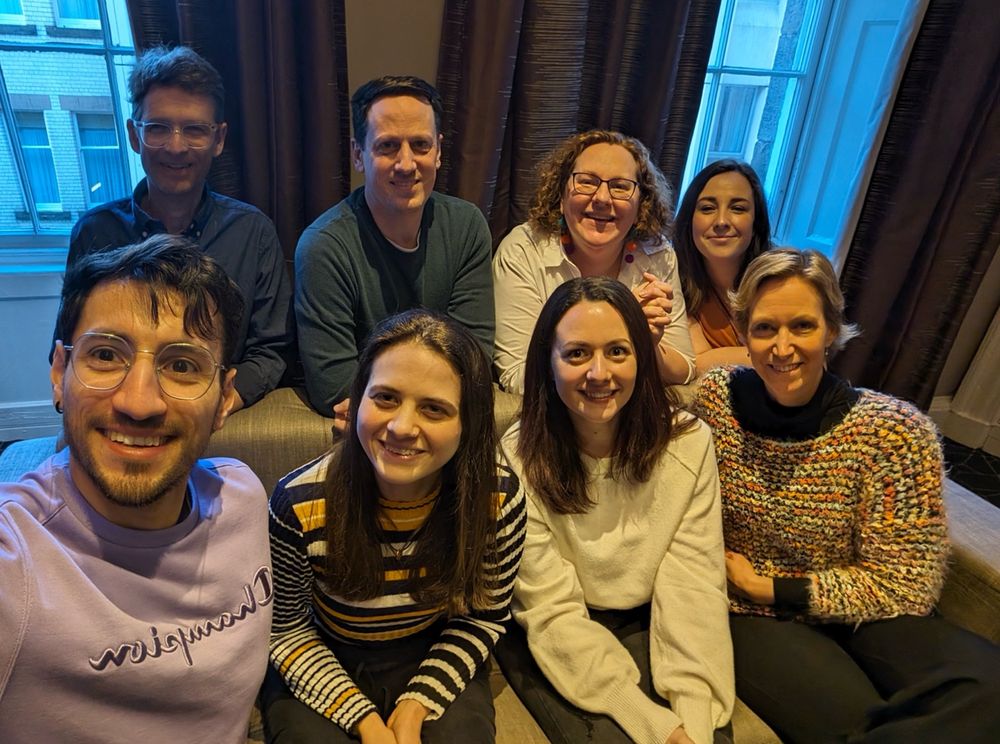
If you don’t have access, feel free to message me for a copy or request it on Researchgate!
1/6
If you don’t have access, feel free to message me for a copy or request it on Researchgate!
1/6
www.youtube.com/watch?v=TLKV...
#autism #neurodiversity #BluesClues

www.youtube.com/watch?v=TLKV...
#autism #neurodiversity #BluesClues
lemonada.lnk.to/AlivewithSte...
lemonada.lnk.to/AlivewithSte...

osf.io/preprints/psy...
#BlackAutisticAdults #Intersectionality #AutismResearch #Neurodiversity #DisabilityJustice #AutismAcceptance
2/2
osf.io/preprints/psy...
#BlackAutisticAdults #Intersectionality #AutismResearch #Neurodiversity #DisabilityJustice #AutismAcceptance
2/2
Our new paper shows how stigma is shaped by race, gender, and sexuality, creating unique challenges for Black autistic adults, women, and LGBTQ+ autistic people.
www.liebertpub.com/d...
1/2

Paper link (OA):
doi.org/10.1371/jour...

Paper link (OA):
doi.org/10.1371/jour...
@sarah-foster.bsky.social et al examined verbal collaboration during a group tower-building task among autistic and non-autistic adults
NEW FREE to Aug 28
www.liebertpub.com/doi/10.1089/...

@sarah-foster.bsky.social et al examined verbal collaboration during a group tower-building task among autistic and non-autistic adults
NEW FREE to Aug 28
www.liebertpub.com/doi/10.1089/...
#AutismResearch #ActuallyAutistic
et al. examined verbal collaboration during a group tower-building task among autistic and non-autistic adults (1/)
NEW FREE to Aug 28
www.liebertpub.com/doi/10.1089/...

#AutismResearch #ActuallyAutistic
et al. examined verbal collaboration during a group tower-building task among autistic and non-autistic adults (1/)
NEW FREE to Aug 28
www.liebertpub.com/doi/10.1089/...

et al. examined verbal collaboration during a group tower-building task among autistic and non-autistic adults (1/)
NEW FREE to Aug 28
www.liebertpub.com/doi/10.1089/...
The Social Model in Autism Research
guest edited by @jopavlopoulou.bsky.social @dramypearson.bsky.social Hanna Bertilsdotter-Rosqvist plus @kbottemabeutel.bsky.social from the permanent editor team
journals.sagepub.com/toc/auta/29/...

The Social Model in Autism Research
guest edited by @jopavlopoulou.bsky.social @dramypearson.bsky.social Hanna Bertilsdotter-Rosqvist plus @kbottemabeutel.bsky.social from the permanent editor team
journals.sagepub.com/toc/auta/29/...

Using Q Methodology, a Group of Neurodivergent Neurodiversity Researchers Ask: What is the Neurodiversity Movement and what should it do?

Using Q Methodology, a Group of Neurodivergent Neurodiversity Researchers Ask: What is the Neurodiversity Movement and what should it do?
Free access thru 8/31.
www.sciencedirect.com/science/arti...

Free access thru 8/31.
www.sciencedirect.com/science/arti...
My end of @leverhulme.ac.uk fellowship lecture is on the 24th of September! It will be in person at @durhampsych.bsky.social and also streamed online. Tickets are available on Eventbrite.
www.eventbrite.co.uk/e/centre-for...
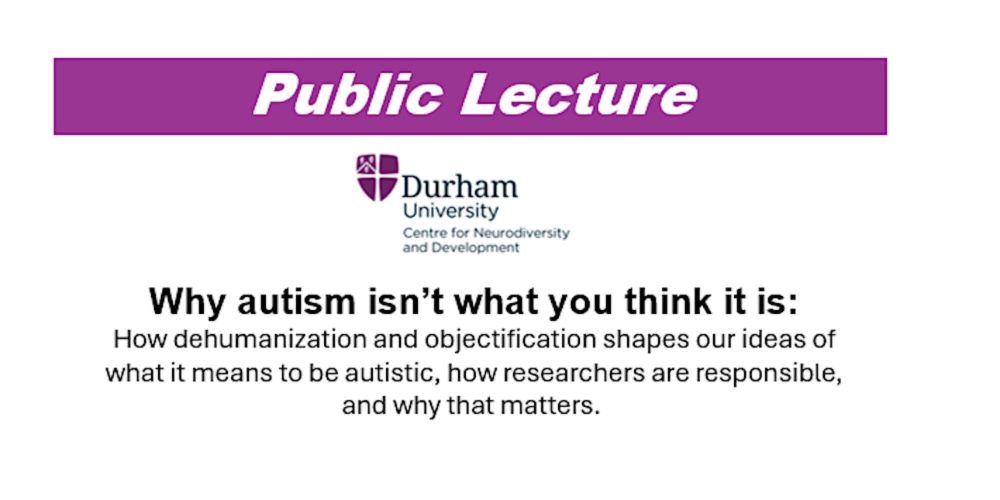
My end of @leverhulme.ac.uk fellowship lecture is on the 24th of September! It will be in person at @durhampsych.bsky.social and also streamed online. Tickets are available on Eventbrite.
www.eventbrite.co.uk/e/centre-for...
We examined verbal collaboration among autistic and non-autistic adults in same- and mixed-neurotype groups during a shared task.
We examined verbal collaboration among autistic and non-autistic adults in same- and mixed-neurotype groups during a shared task.
acamh.onlinelibrary.wiley.com/doi/10.1111/...
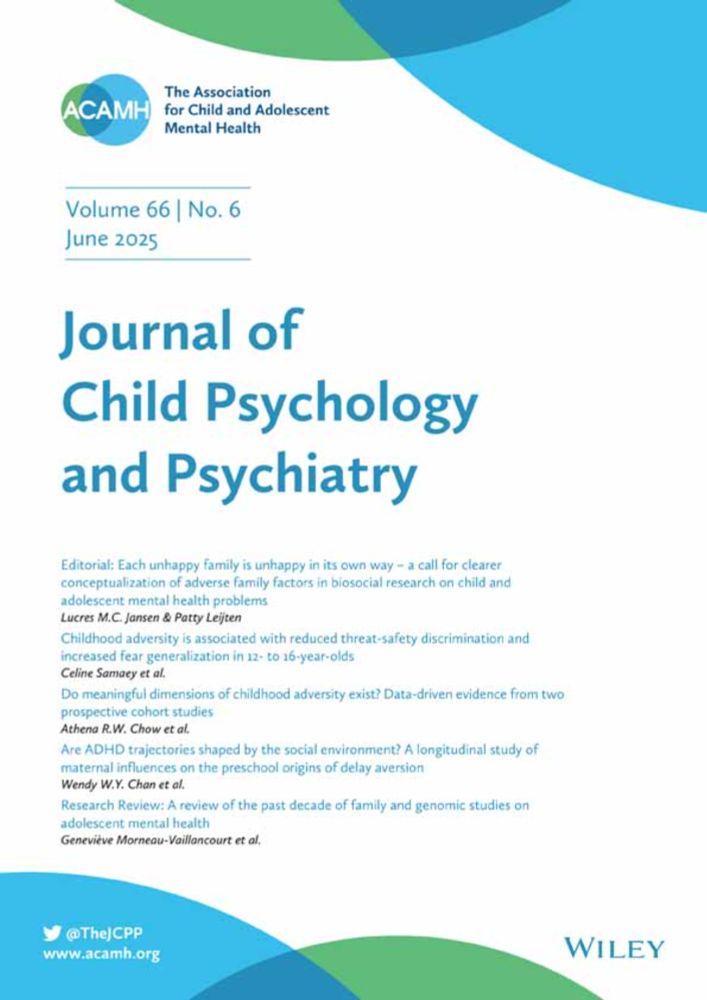
acamh.onlinelibrary.wiley.com/doi/10.1111/...
news.utdallas.edu/health-medic... #autism #neurodiversity

news.utdallas.edu/health-medic... #autism #neurodiversity
Finally, something to impress my friends and family!
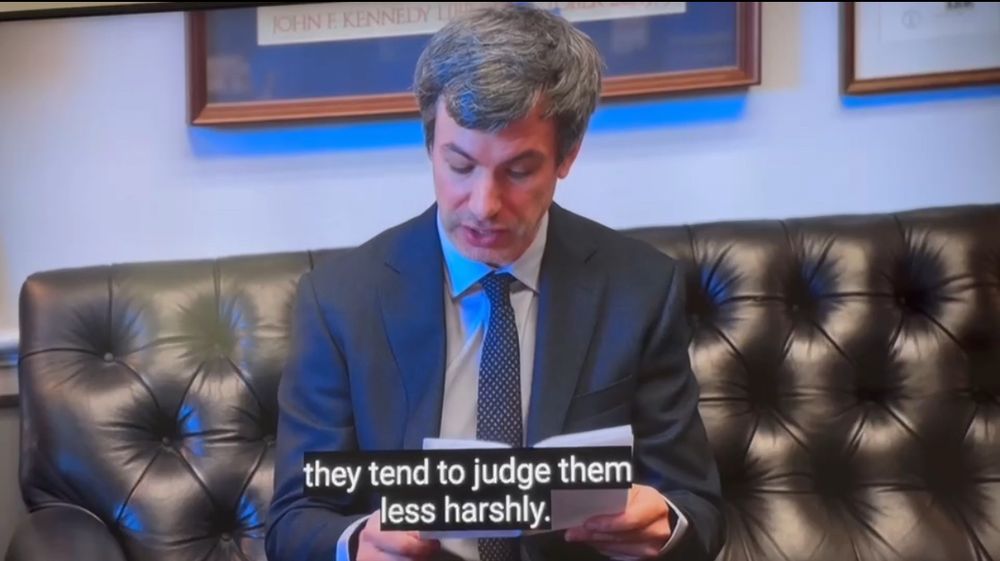
Finally, something to impress my friends and family!

Hundreds of paired and group interactions, exploring the double empathy problem in a large diverse sample.
Information transfer within and between autistic and non-autistic people is out today in @nathumbehav.nature.com
nature.com/articles/s41...
THREAD! 🧵⬇️
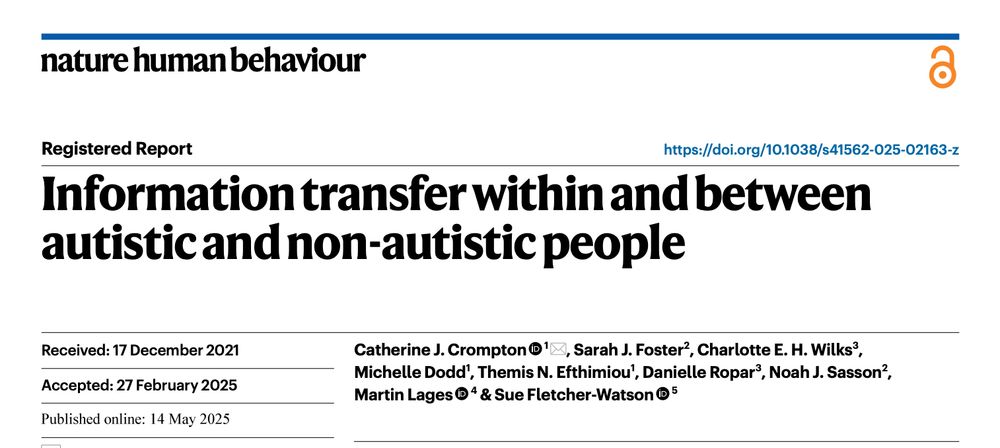
Hundreds of paired and group interactions, exploring the double empathy problem in a large diverse sample.
Its been a team effort with @noahsasson.bsky.social @suereviews.bsky.social @sarah-foster.bsky.social @themisefth.bsky.social @michelleldodd.bsky.social, Martin Lages, Charlotte Wilks + Dani Ropar. #DreamTeam
